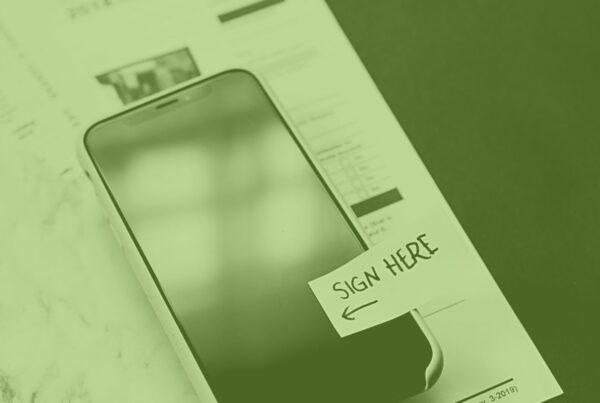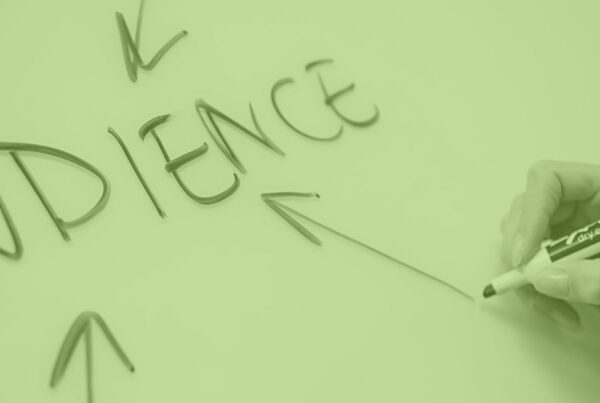Events and experiential marketing have established themselves as some of the most powerful marketing strategies. After all, lived experiences have a much more profound impact on an individual than emails, cold calls, and other impersonal marketing tactics. Happy event attendees can easily convert into brand evangelists, customers, or B2B clients. Events are a wildly successful marketing strategy, but not by default. Marketers need to know how to build a comprehensive event strategy and how to measure event marketing success.
We cannot rely on our gut feeling to assess whether our events are successful or not, nor can we only rely on one method of data collection. Similarly, we must ask all event participants about their experiences: attendees, staff, sponsors, exhibitors, etc. Measuring event success is a comprehensive endeavor that starts well before the event, continues during the event, and concludes after the event data is analyzed or applied to the overall event strategy.
With the ability today to measure metrics and pinpoint specific results, it’s essential to be able to show how event marketing efforts were successful. After all, marketing is allocated a considerable portion of the budget, and we need to be able to show evidence that marketing investments are worth the money spent. Additionally, measuring what event marketing efforts were and weren’t successful can help you establish a plan for improving marketing efforts for your next event.
Set Event Marketing Goals
An event marketing plan needs to have event goals attached to it, otherwise, planners cannot objectively assess whether their event was a success or not.
When setting effective goals for event marketing success, you need to make sure they are SMART goals. If a goal is too lofty, you will fall short. If goals are too low, there is nothing worthwhile to reach for and you will only manage to achieve mediocre results in your event marketing. For those not familiar with the idea of SMART goals, the acronym stands for:
- Specific: goals should be well-defined with a particular target. For example, setting the number of new registrations you want to achieve from a particular email campaign.
- Measurable: being able to track the results via metrics using quantitative or qualitative attributes.
- Attainable: setting a goal that can be achieved is a way of making you (and your client) happy when you do reach it.
- Realistic: make sure you’re honest about your capabilities and any hurdles you may face. Budget is often a constraint when it comes to keeping goals realistic.
- Time-bound: deadlines are an integral part of goal setting. Your event marketing success should be measured per event and with an end date, not as something you might achieve someday.
For example, SMART goals can be defined by answering the following questions:
- What is my event budget?
- What do we aim to achieve with this event?
- What type of event best suits the purpose of the event?
- What are our company’s general marketing goals?
- Who is our ideal attendee persona? Who are we marketing to?
- What content or speakers is going to resonate with the speakers?
 Measure Event Marketing Success With KPIs
Measure Event Marketing Success With KPIs
Event goals are tied to KPIs: measurable data points that assess whether the said goals are achieved. Those benchmarks should relate to your intended outcome for the event, according to both your expertise and client expectations.
Choose the specific metrics you’re going to be tracking from the commencement of event marketing, so that you have the data you need before, during, and after the event. To get a complete picture, you will need to start tracking some of this data before your marketing campaigns begin. After all, if you don’t have the right starting point, how can you claim your results are accurate?
To choose your event KPIs, ask yourself how will you define marketing success for this event. Event success can look like:
- increased social media presence and better brand awareness,
- winning new accounts to drive sales revenue,
- session popularity and interactions through polling and Q&As,
- expanding the number of product users to feed an overarching goal of delighting your customers.
There are both quantitative and qualitative ways to answer the question of how to measure event marketing success. Quantitative event data measures marketing success and event ROI in numbers. For example, the number of attendees/social media mentions/content downloads, Likert scale survey results, grading content from 1 to 5, etc.
On the other hand, qualitative results are related to the attendee’s perception. That is their perceived value of the event, brand positioning, and awareness. For example, the content of social media mentions, written reviews, and answers to open-ended survey questions.
Choose Your Data Collection Points
Event planners can measure KPIs and event marketing success through various means. Bizbash and Hopin’s report on event metrics states that planners use the following six channels to collect event data:
- real-time surveys and analytics,
- pre- and post-event surveys,
- social media engagement and website traffic,
- built-in analytics from registration platforms and POS systems,
- all-in-one event platforms,
- manual count of registrations, revenue, session visits, etc.
Real-time Surveys & Analytics On Event Apps & Platforms
If you need to know how to measure event marketing success, you can use event app metrics and depth of interaction. You can measure data points like audience engagement and satisfaction. You can see:
- how attendees are interacting with others via chat and networking features,
- attendee feedback about or to the guest speakers,
- how much the special features of your event app are being used (for example an inbuilt business card scanner),
- whether the attendees are using support features to ask event staff or event chatbots questions.
A simple rating system within your event app could also give you a massive insight into the level of engagement and satisfaction that attendees have for different aspects of your event – including in real time. So, if you want to know how to measure event marketing success, try including a 5 star-rating system for each session or for each speaker.
Try to generate short surveys periodically during the event. That could be at the end of each session or when there is event downtime. If the survey reveals any issues for attendees, you can take steps to resolve them. We discuss this idea further in our article on crowd shaping.
It’s a simple system that doesn’t require much effort from the attendees; it can be completed on the go. While we encourage using this as an indicator, you shouldn’t place too much stock in the event app results alone. After all, just one small thing could sway your event goer to indicate negatively at the moment, even though they’ve generally had a positive experience. And the star rating won’t allow you to know what that small thing was.
That’s why it’s also important to use more in-depth survey methods.
 Pre- & Post-Event Surveys
Pre- & Post-Event Surveys
Event marketing success isn’t only measured by attendee numbers or sales, but also relies on the attendee experience. That’s why surveys are a must-have tool, to actually ask your customers about their experience and expectations. Aside from surveying attendees during the event, event marketers also use pre- and post-event surveys, sent via emails, apps, or platforms.
Planners use pre-event surveys to get as many details about the attendees as possible and not overwhelming them at the registration itself. But it’s not only attendees who participate in the event; event sponsors, too, should be surveyed and made whole. Here are some common pre-event survey questions:
- where did you hear about this event?
- which speakers/sessions are you looking forward to the most?
- have you been to this event before?
- do you have any dietary restrictions/medical conditions we should be aware of?
Your post-event survey should:
- ask questions that directly relate to whether attendees are now more (or less) likely to attend future events,
- ask whether attendees would now recommend company products and services,
- determine if attendees are likely to buy a new product during the launch,
- ask whether your event met their needs and what they liked most,
- put forward questions designed to ascertain the value attendees felt your event and the brand provided.
The results of your event survey should inform you about the success of your event and your overall event management. You can use constructive feedback and apply it to your event strategy moving forward.
Aside from conducting a post-event survey, you should also hold a debrief meeting with sponsors and your team to measure the event’s marketing success.
Registration Metrics
Registration metrics help you measure your event marketing success because they tell you whether your marketing campaigns attract your target audience. You should evaluate the conversion rates from each event registration source, whether that’s email or social media. Registration is the most important metric to consider as the precursor to overall event marketing success. After all, a successful event relies on attendees – and revenue. Look at peaks in registrations and determine if those times correlate to any particular marketing effort that might have kicked off beforehand.
Additionally, look at the performance of invitation email open rates. Compare ‘sent’ vs. ‘opened’ vs. ‘RSVP’. As you go, it might be worthwhile A/B testing different factors to see if they influence registration metrics. Those factors might include ‘from’ fields and the subject line. Finding the right subject line could improve your open rate, which will, in turn, impact your RSVP rate too.
We suggest you monitor and measure:
- Number of event registrations,
- The main registration sources,
- When peak registration times occurred,
- Date and time of marketing blasts.
Once the event has happened, you can compare the RSVP numbers to your number of actual attendees. This conversion rate helps you ascertain how successful your marketing efforts were after registration and leading up to the event. Additionally, you can calculate your attendee retention rates and learn more about your audience’s demographics.
Social Media
If you’re wondering how to measure event marketing success, then monitoring social media activity can sometimes be a good indicator. However, monitoring social media might not work for every event you plan. Some types of events and attendee demographics would lend themselves better to this approach than others. For instance, a festival that attracts a mostly millennial audience will naturally have a higher potential for social media engagement than a medical conference for busy surgeons, or an event that incorporates unplugged zones.
This is how to engage your audience on social media and measure your event’s success:
- Is the event hashtag in use? How many times?
- Were there many brand mentions?
- How many social media impressions were made?
- Is there much interaction from event-goers, from posting photos to tweeting their favorite quotes from speakers?
- Were the comments positive?
- Were there any repeated complaints?
You should keep a close eye out for comments that indicate an attendee wasn’t aware that a session or speaker was part of the event. After all, if they have missed something of interest because they didn’t know it was happening, this is an indicator that your event marketing efforts need fine-tuning.
If you aren’t already, then we recommend using a social listening dashboard to help you in your analysis of social media activity. This takes the hard yards out of it, making your life much easier and your insights more accurate.
How To Measure Event Marketing Success
Measuring event marketing success and the event’s overall ROI is not an easy feat. Planners need to decide which KPIs to prioritize, how to collect and analyze data, and finally, present it to the event’s stakeholders. The bigger the budget and the importance of a company’s event marketing strategy, the more likely planners are to reach out to event management companies to help them reach their event goals.
Endless Events is a full-service event management company that does just that. Our services include event strategy, production, creative services, and event management, supporting our partners from the ideation phase to post-event analysis. If you are looking for a bespoke event management partner, reach out. The Endless Events team is here to help.
Editor’s Note: This blog post was originally published in June 2018 by Kristen Cooper and has been updated for accuracy and comprehensiveness.








